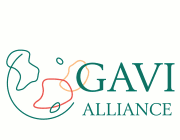 |
|
|
Fifth GAVI Board Meeting, 21-22 June 2001, London, England June 2001 Update: Immunization Data Quality Audit (DQA) Background For the purpose of monitoring the number of children immunized with DTP3, WHO has developed a tool for data verification; Data Quality Audit (DQA), to be performed according to a standard methodology. This tool has been developed to meet two main criteria: to establish the number of children being immunized (and, in later years, the additional number of children) and to build on and support the routine health and immunization reporting system. Specifically the DQA will result in the establishment of country specific correction factors that can be used for the calculation of immunization services support for each year. In order to maximize information, household surveys or immunization coverage surveys are encouraged in populations where DQA is being implemented. The audit tool The DQA will establish the number of children immunized with DTP3 in a sample of 24 health facilities in four different districts within each country concerned, based on the registration of immunization at these facilities. This number will then be compared to what has been reported to the national level (and by the country to WHO, UNICEF and GAVI). If there is a difference, a correction factor that will be applied to calculate the immunization services support from GAVI/the Vaccine Fund will be established. It should be noted that the DQA can only establish reported immunizations. If children are immunized without being recorded this will not be picked up by the audit. Thus the DQA serves to establish the number of children immunized and reported. This is an advantage as any national monitoring system needs to keep track of its immunizations. The audit is designed to enable two external auditors, with local support, to assess the immunization data reporting system in a period of approximately two weeks. In each country the audit will be carried out as follows:
In addition to the accuracy checks (recounted/reported), all aspects of the reporting system are assessed; in particular, a quality index of the system is calculated for the three reporting levels (health facility, district and national), and performance indicators are also calculated. The tool provides immediate feedback to national staff on practical ways to strengthen their recording system. Implementation 2001 The audit will initially be implemented on a pilot basis during the period May-September 2001 in the nine countries that were awarded the highest immunization services support in 2000 and early 2001. The countries to be audited this year will be Côte d’Ivoire, Haiti, Kenya, Liberia, Mali, Pakistan, Rwanda, Tanzania, and Uganda. The experiences from this year’s pilot audits will guide subsequent audits. To implement the audit it was decided to search for a suitable company/institution/ organization to be in charge of the whole process in the nine countries in 2001 from start to end. A tendering procedure was carried out resulting in the award of the contract to implement the DQA to a consortium that is headed by the Liverpool Associates in Tropical Health (LATH), UK, in association with the Euro Health Goup (EHG) from Denmark and the Deloitte and Touche Emerging Markets Group (D&T), USA. The consortium combines the expertise of each of the partners. LATH is associated with the Liverpool School of Tropical Medicine and has a strong research knowledge base and extensive global experience in health assessments and evaluations. The Euro Health Group has considerable experience in drugs and vaccine programme management and management information systems and has carried out a number of global assessments and reviews. Deloitte and Touche, Emerging Markets Goups is one of the world’s leading professional services firms with some 90,000 partners and staff in offices in over 130 countries around the world. The project has started with a training session in Nairobi in early June followed by field training in Pakistan and Uganda. If necessary the audit manual will be revised as a result of these initial audits. The audit in the remaining seven countries will then be carried out in the period July-September with the results to be available in time for the annual reports which are to be delivered by 30 September in the GAVI/the Vaccine Fund supported countries. The pilot audits in year 2001 will not be used for adjustment of the immunization services support (the allocation of shares) to countries. After 2001 After the pilot audits in 2001 an evaluation meeting will be held end September to assess the methodology. After that decisions will be made regarding the use of the DQA in subsequent years. Based on this assessment, the need for including surveys to complement the DQA in connection with the mid-term review will be considered.
|
|
|
|
Copyright © GAVI |